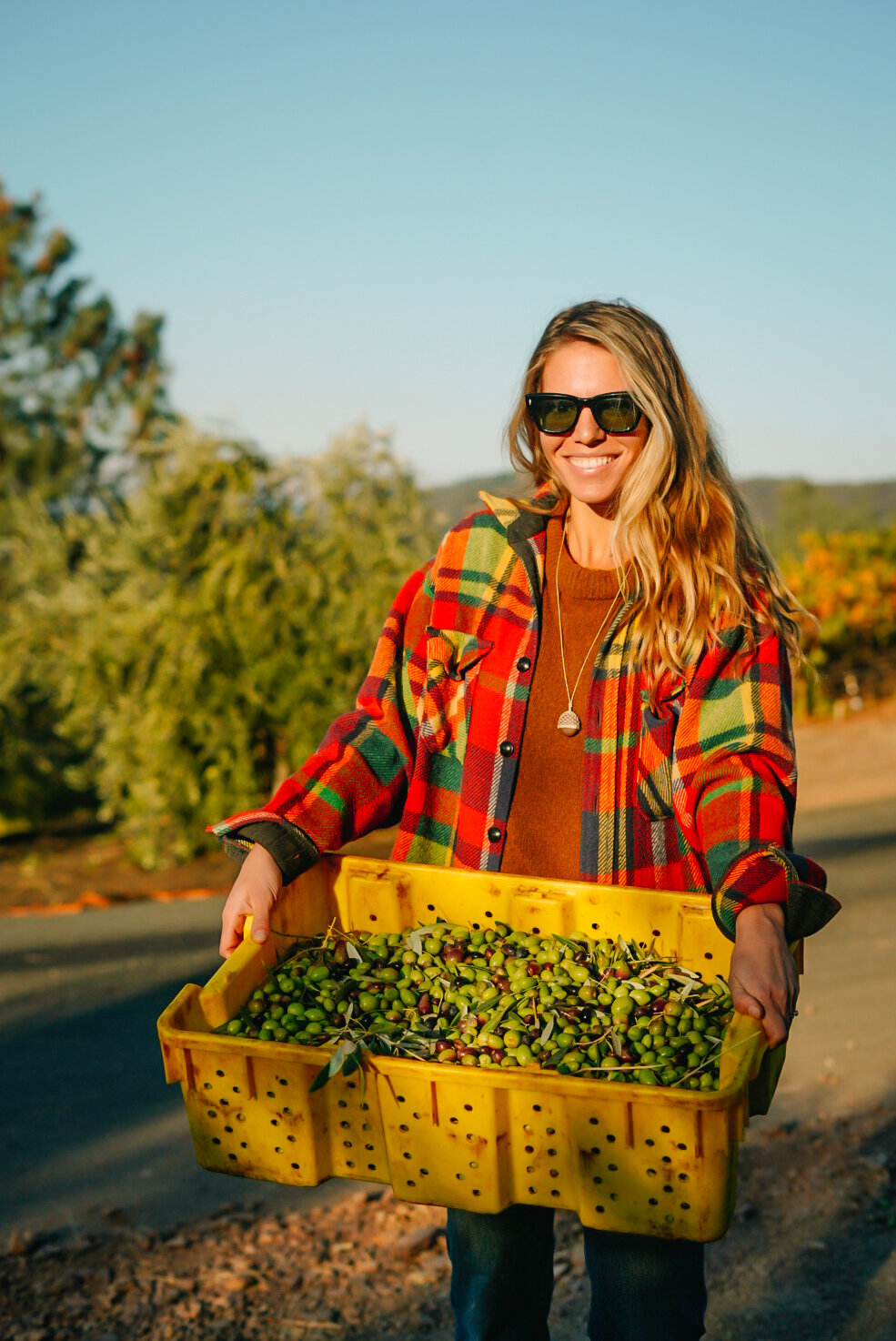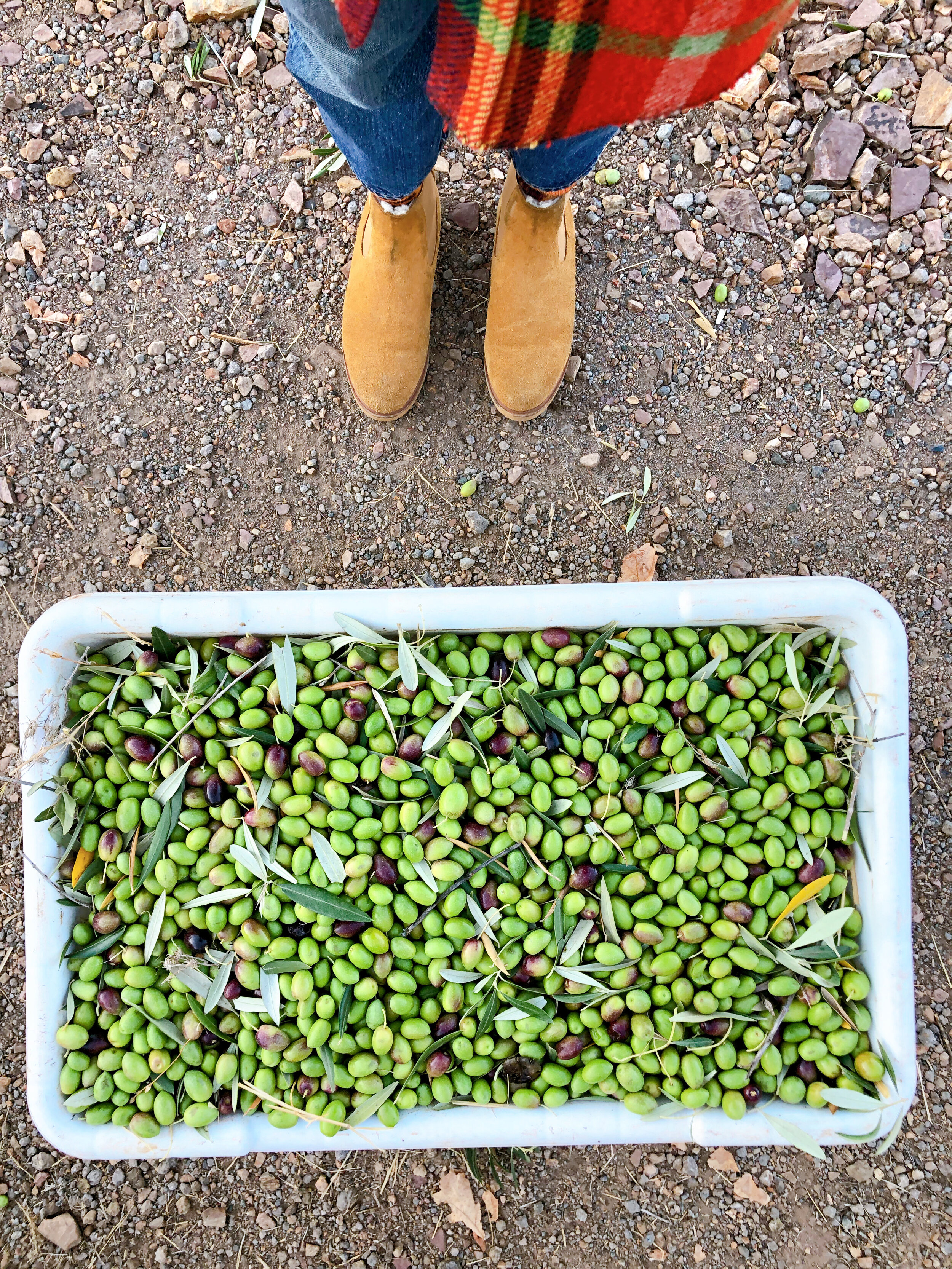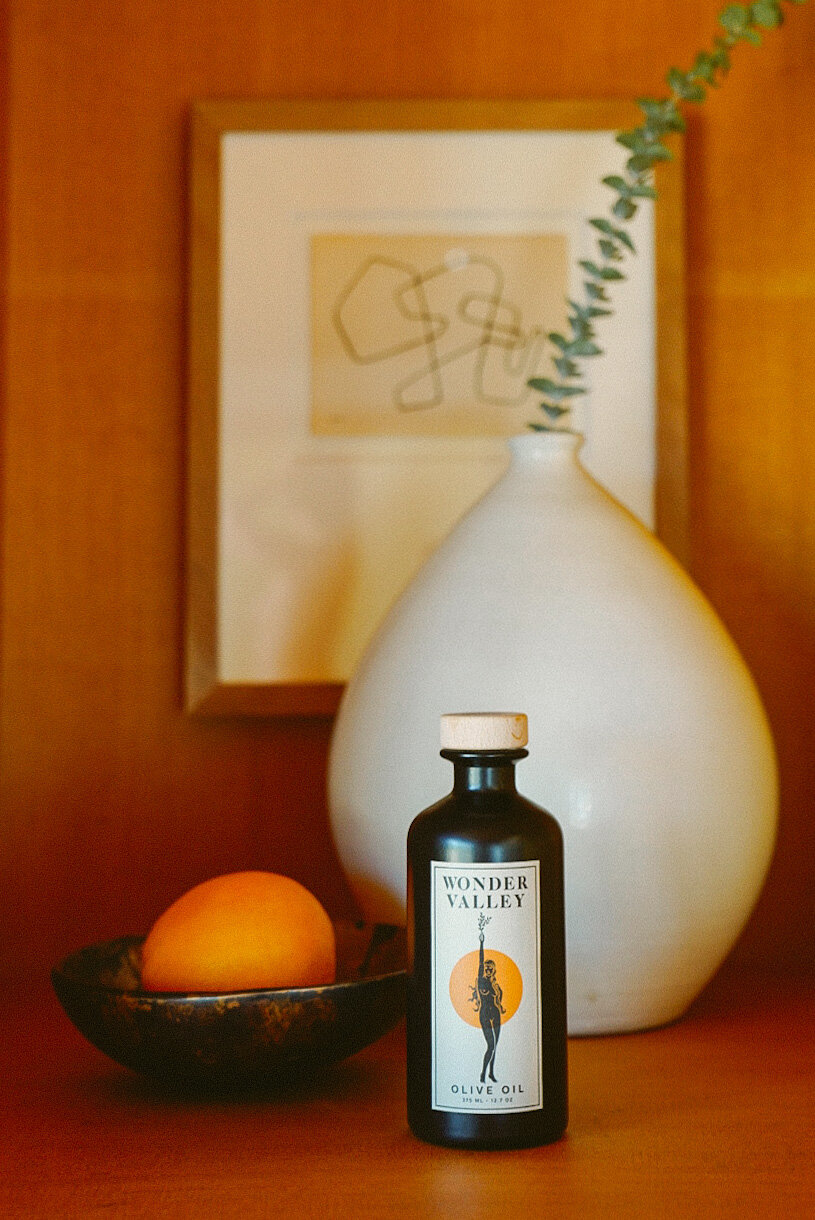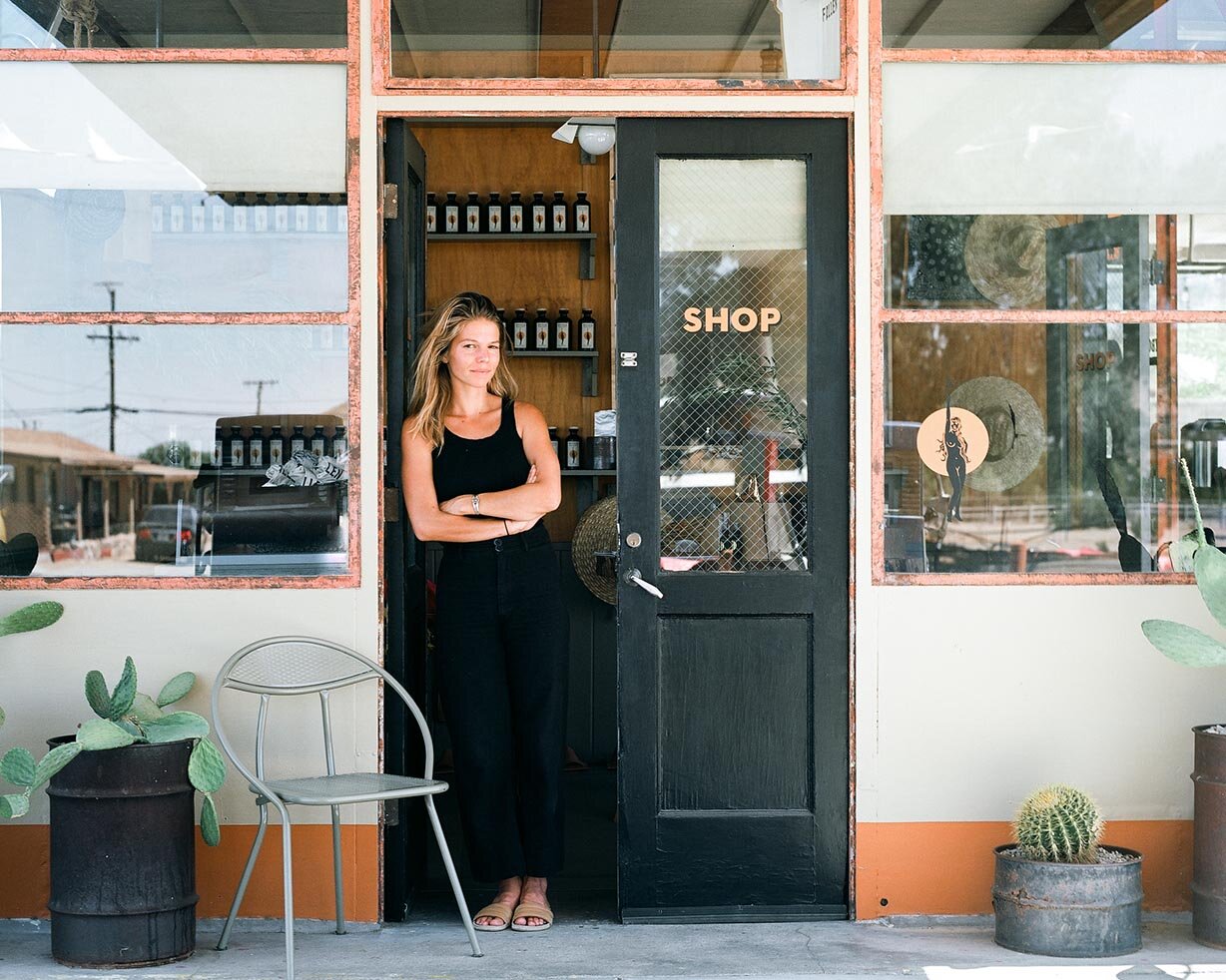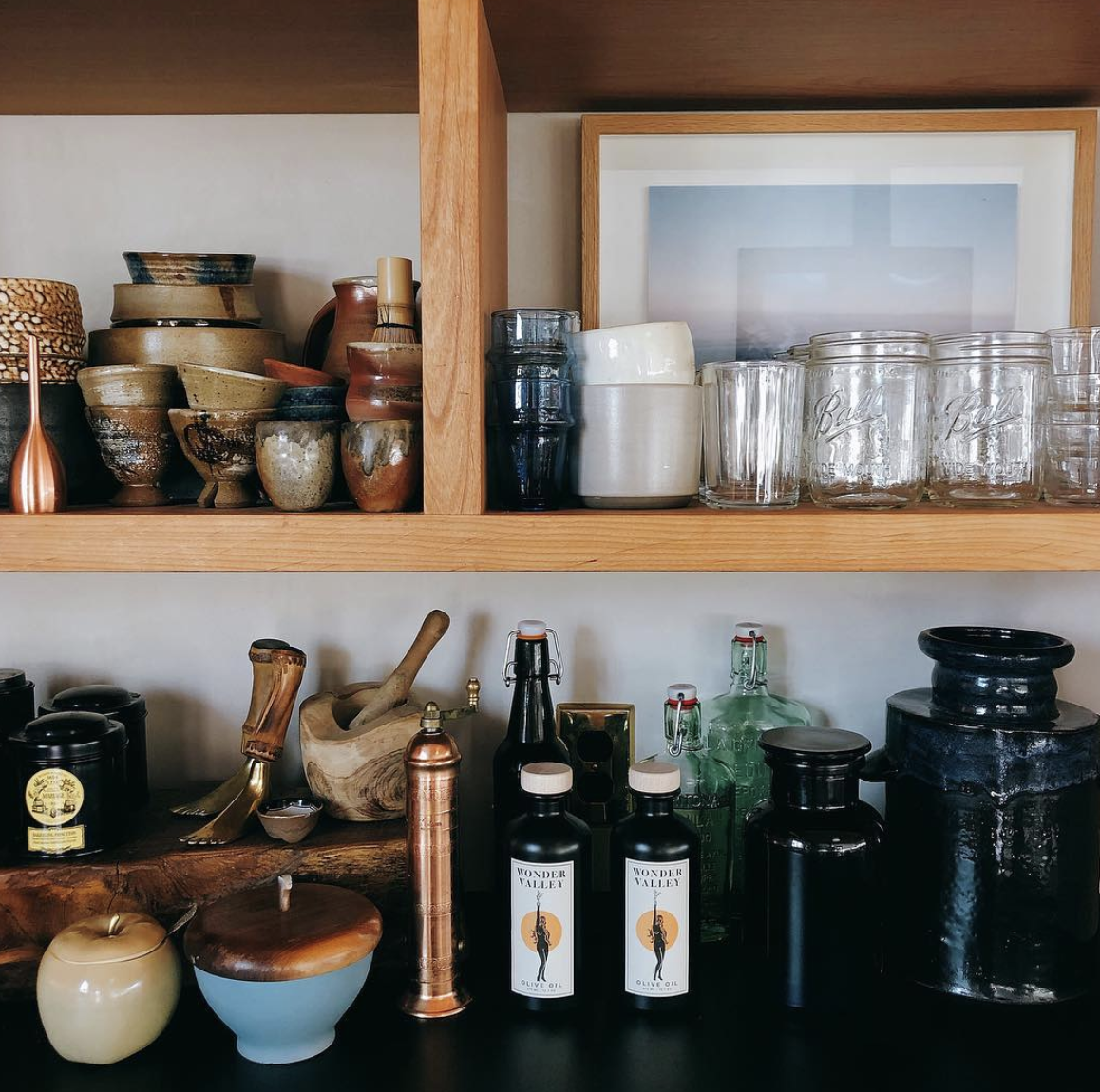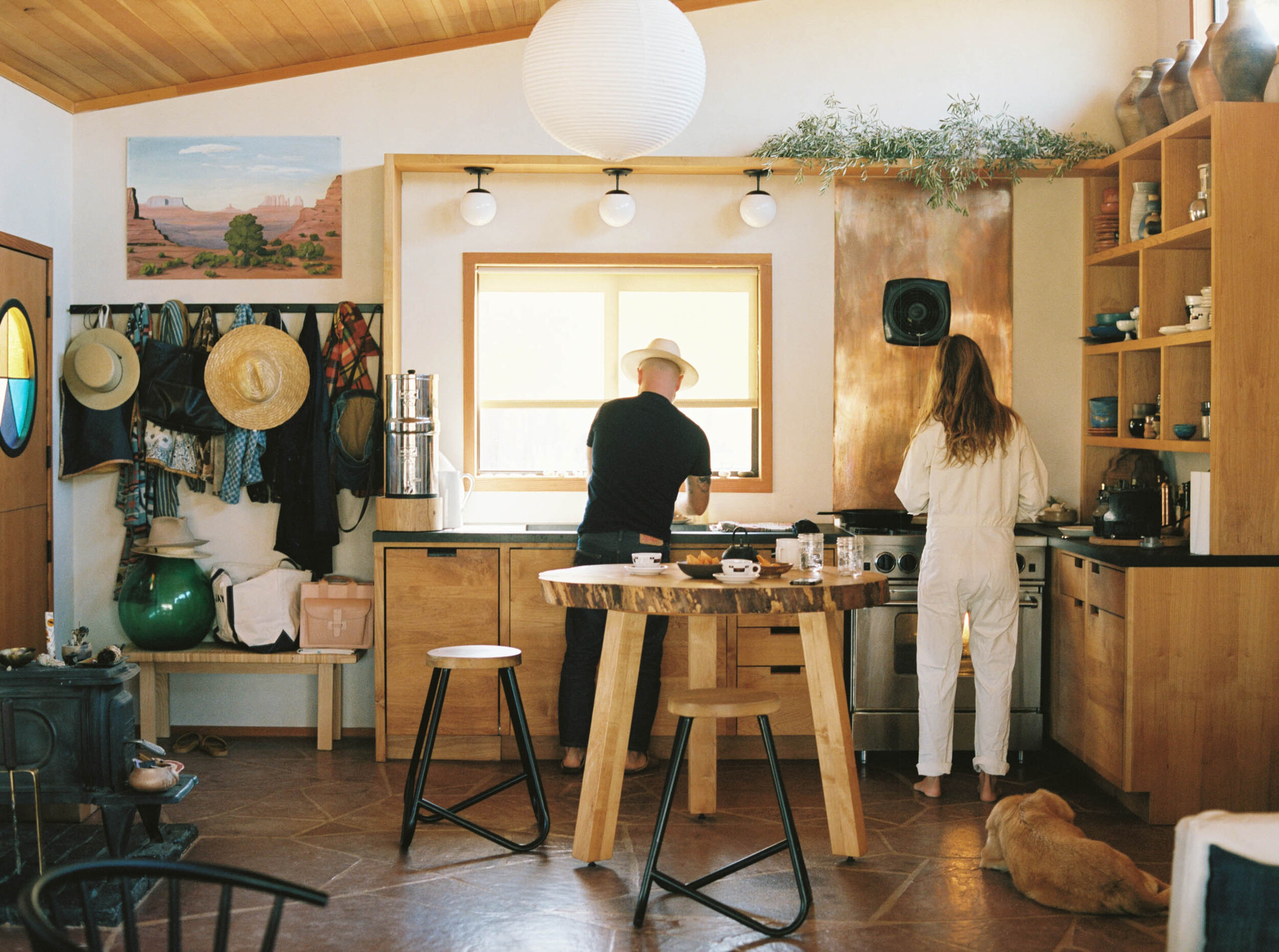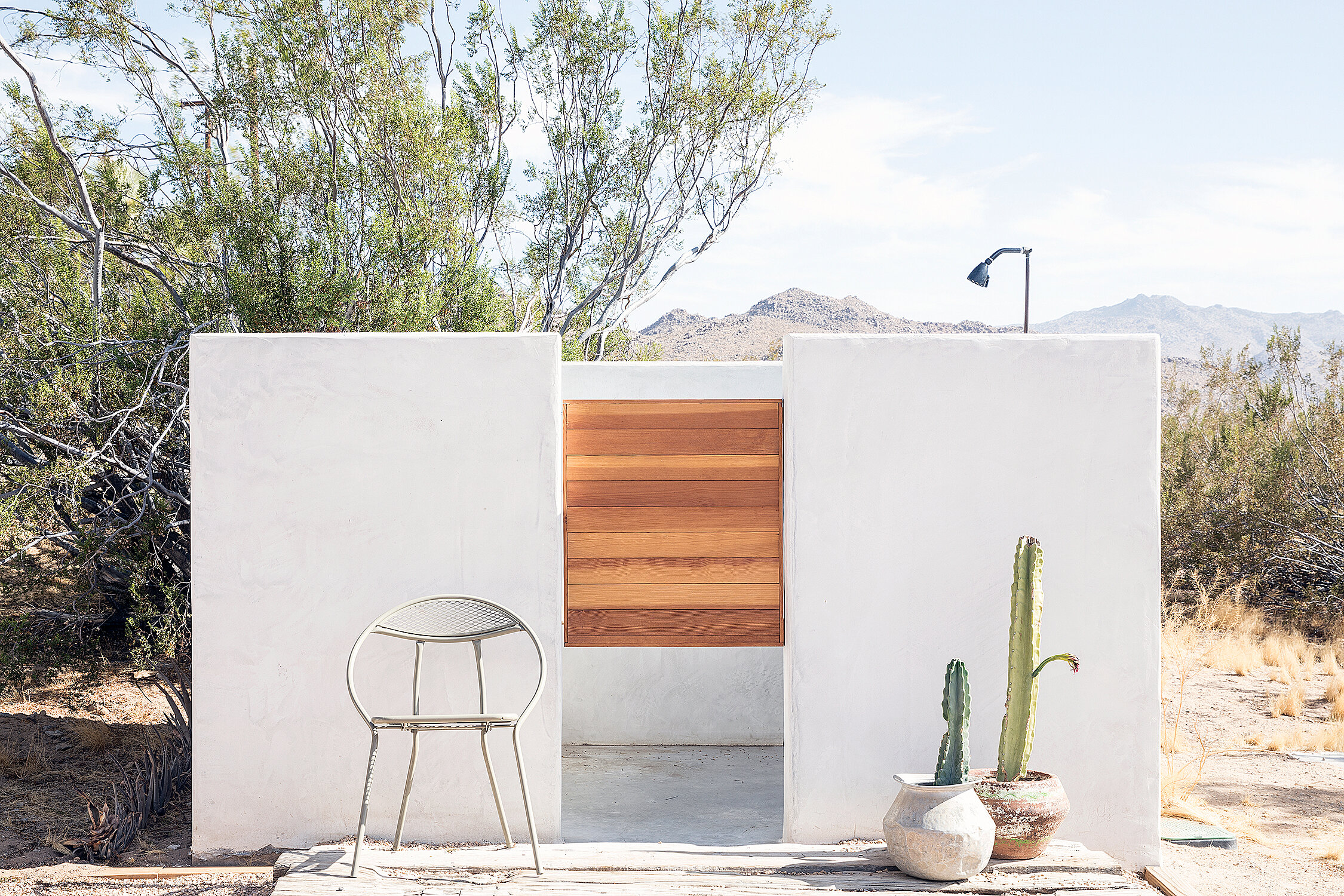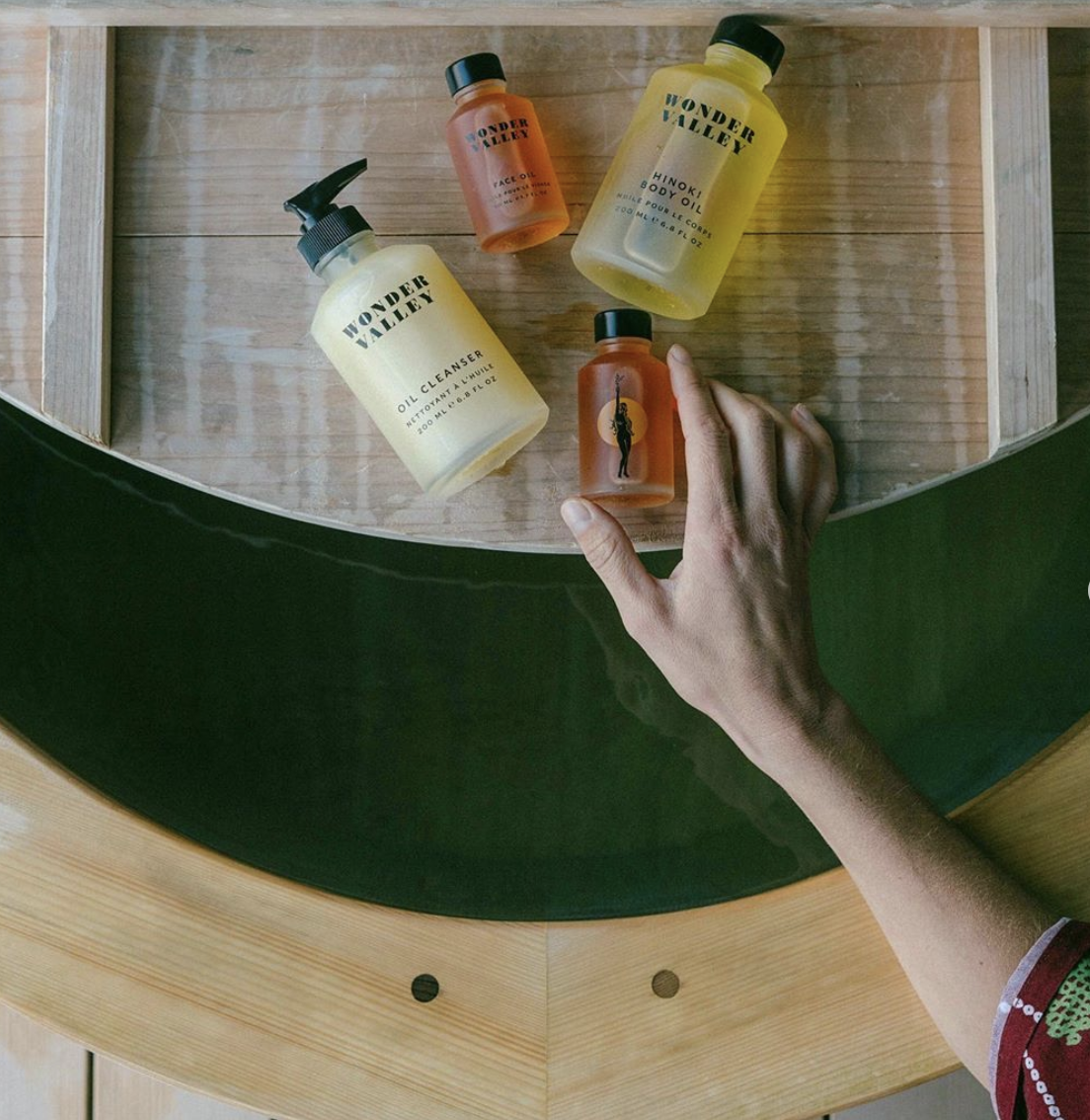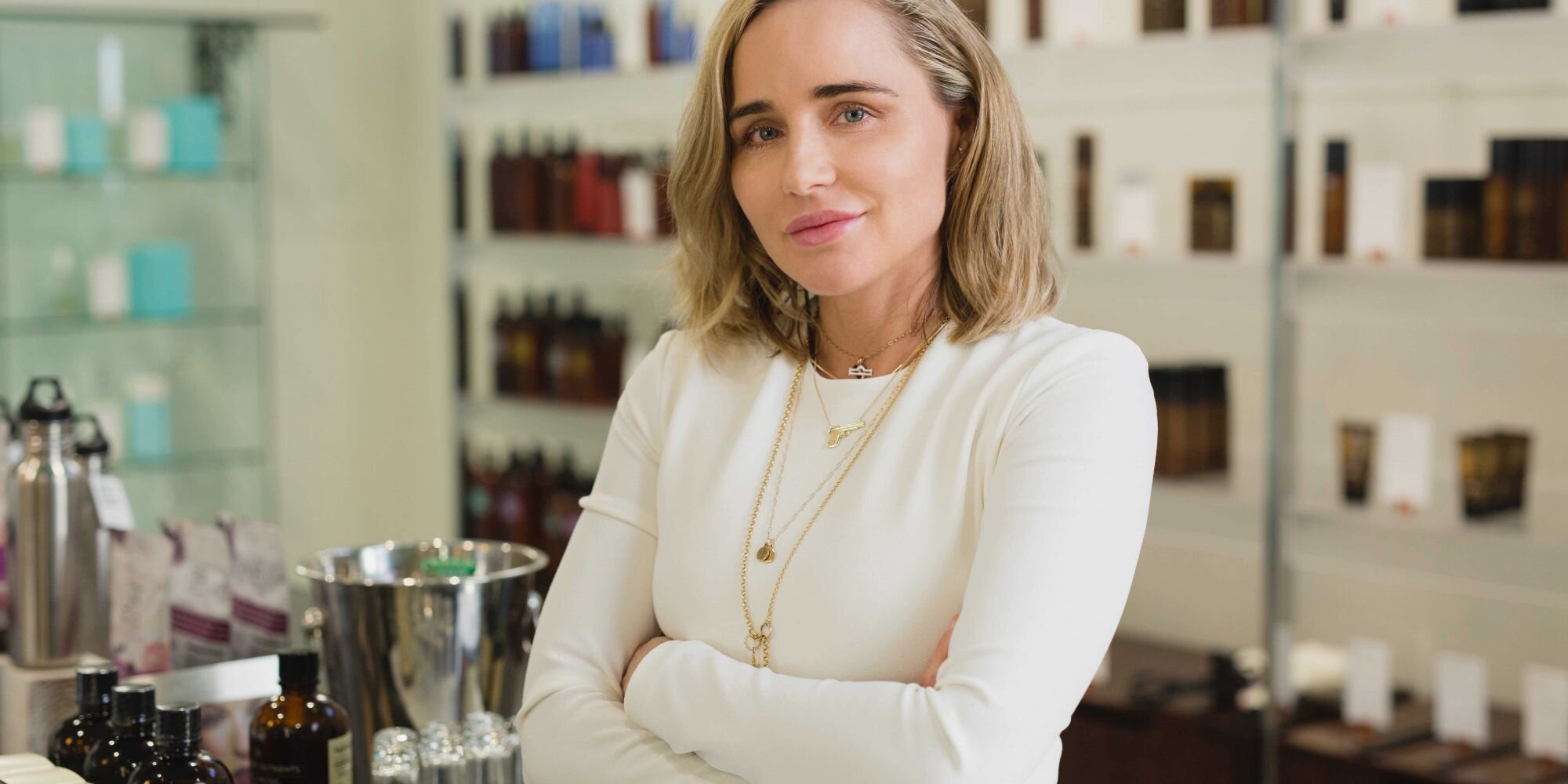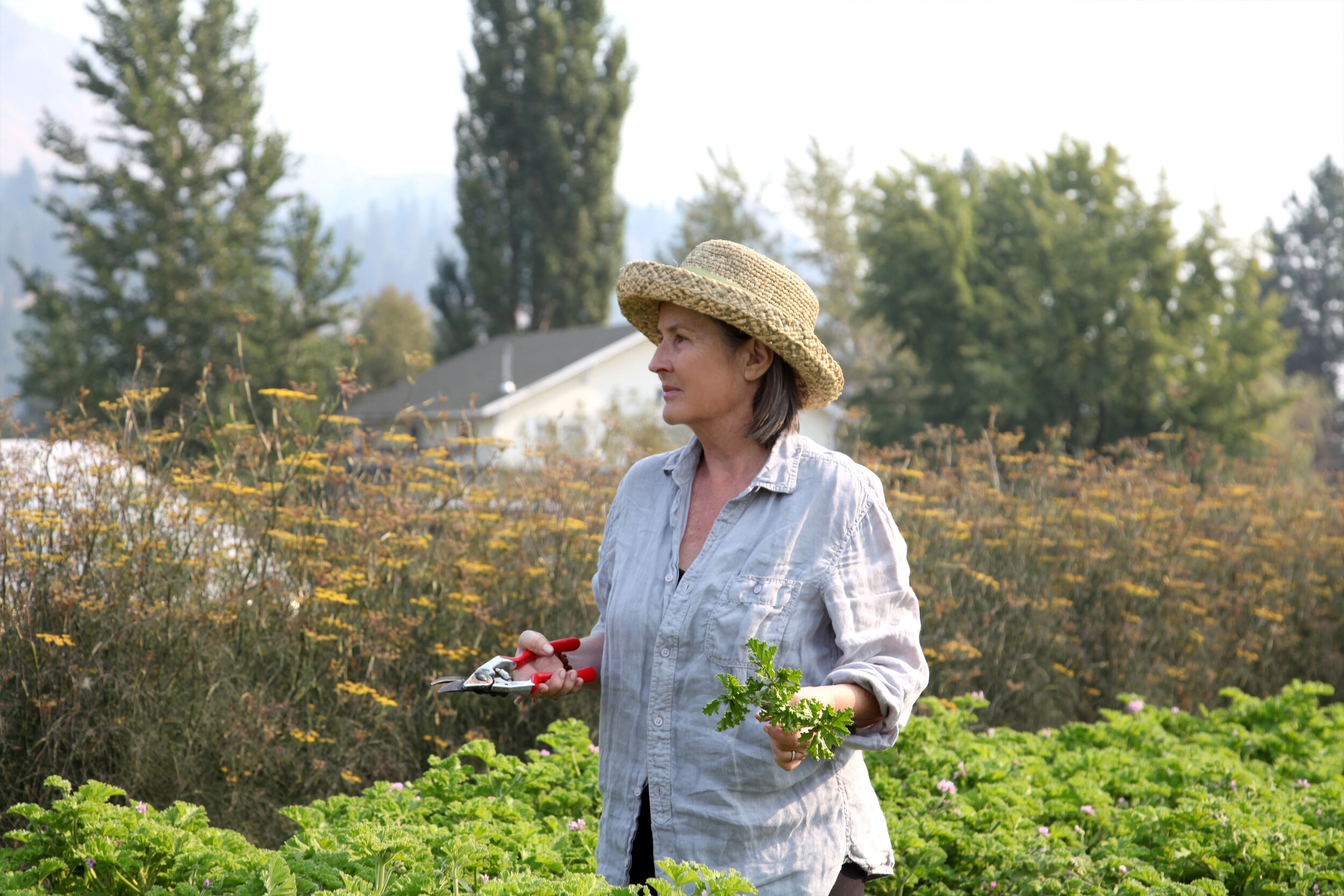alison carroll

Last month, I had the delightful privilege to speak at length with an inspiring Manifesting Generator. As a self-described Jack of All Trades and Master of None, Alison Carroll spoke from a place of gentle confidence in her good taste and strong work ethic. Anyone with a fine palette or a desire to pursue multiple passions will relish in this conversation covering Wonder Valley’s Olive Oil products, desert life, and stepping into one’s own power.
MM: Tell us about your upbringing, would you share your early passions and strengths?
AC: I grew up in a town called Lawrenceville, New Jersey which is located between Princeton and Trenton. As a child, I was interested in forts and creating spaces. For my ninth birthday, my parents got me discs to place under furniture because I was always moving things around. Spatial design was big for me. Food was always important for us, especially on my dad’s side, our Italian side of the family. Personality-wise, I’ve always been tenacious. I have an early memory of an evening—my mom was taking care of my sister and fixing dinner and she had her hands full. I came in and told her I wanted to build a birdhouse and she said, “that’s the last thing I want to do” to which I responded, “cool, so I’ll pencil that in for the last thing we do today!” So, I think I have always been a little bit of that. I’m sure it can be exhausting to work with at times, but I consider it a strength. I’m pretty tireless, resourceful and scrappy. I problem-solve well and juggle many different interests from Wonder Valley to interior design projects to my jumpsuit line I have on the side. There’s a lot that interests me.
MM: How has education impacted your professional life?
AC: I went to Drexel University and picked Marketing as a major which seemed basic and all-encompassing. I didn’t know what exactly I wanted to do. Like I’ve mentioned, there was a lot that interested me. In hindsight, I wish I took Architecture classes or something else that was more passion related. At the time, I picked something broad enough so that I could be noncommittal. I really enjoyed Drexel and was there for five years and did the co-op program. We went to school for six months and then worked for six months. It gave me exposure at a young age, working at advertising and public relations agencies. I felt really comfortable there, and the experience impressed upon me the value of mentorship and real-life experience.
MM: What was your professional journey like leading up to Wonder Valley?
AC: Out of college, I was employed at an agency for a few years. But on the side, I was totally enamored with food and was distractedly reading cookbooks beneath my work desk all the while. I had a roommate at the time who was a really great pastry chef and we had a little catering thing going on. I would stage and apprentice at the best restaurants that would have me. Around 2012, I got a really extraordinary apprenticeship in Barcelona at a kitchen. I didn’t speak Spanish and felt so lucky to be there. The restaurant was special and highly unique in their sourcing, they had fifty or so sources for ingredients dropping off items every week. I learned many culinary skills there but eventually realized that I didn’t want to be a professional chef. After that, I moved to San Francisco to be with Jay, my husband. I searched for employment on goodfoodjobs.com and eventually became the Marketing Director for the California Olive Oil Council.
MM: What was it like to work for them?
AC: It was a perfect marriage of what I went to school for and had experience in. I cannonballed into the world of domestic olive oil. The council was this small nonprofit in Berkeley and my job was to oversee the only professional olive oil tasting panel in North America. I felt like I came home, it was so exciting. To be exposed to the best authorities on olive oil, alive and in America, was a huge education. Through this job, I met many of our current Wonder Valley packaging vendors and our miller. It paved my way. Wonder Valley then became my full-time job at the beginning of 2015.
MM: Do you feel as though your progression has been an undeniable flow, one perfect opportunity after another?
AC: I guess in hindsight it always looks that way. At the time, I felt a little aimless. I always felt a little sensitive about being a jack of all trades and a master of none. That was something I had to do some work on. Getting comfortable with wanting to do a lot in this lifetime. Learning through Wonder Valley has been such a great teacher for me.
MM: Tell me about how your experience with the Council and your personal palette inform the olive oil Wonder Valley bottles?
AC: There are about 400 people growing olives in California—from small backyard operations to large scale producers. Through my role with the California Olive Oil Council, I got to taste on a weekly basis with professionals. I learned their opinions of what was exciting, interesting, and so forth. It seemed like all my favorite producers were in Northern California, above the Bay Area. There are more old-growth trees and diverse varietals up there. I also think that climate is really idealistic for growing olives. There are only around 40 mills in the state, most are communal since there are many more growers than there are mills. The varietals, the climate, when you pick, who's your miller, these are all factors that play into the final product. But Extra Virgin grade means it is free of defects and most of those defects occur at the mill (fruit fly damage, overheated equipment, remains from whoever’s oil that ran before yours being awry). Primarily, it is the miller that I work with to ensure our quality is exceptional. Most of our olives are Tuscan varietals, which I prefer because of their robustness. What excited me when I started tasting olive oil in California were the brighter, less-ripe olives, the ones we tasted earlier on in the season. They tasted full of vitality. I would take shots of it in the morning and apply it to my skin. I like that California is so untethered to tradition as we’re relatively new to the Olive Oil tradition.
MM: What makes Wonder Valley Olive Oil unique from what I might pick up from a Trader Joes?
AC: What makes our oil unique is that we are picking our olives under-ripe for the industry. It stands out as an ingredient instead of this omnipresent condiment. Ours can really elevate a dish. The more robust, the more peppery the oil is, the more health benefits it offers. That alive quality is really its antioxidants. It’s better for your digestive health, your skin, your cardiovascular health—everything that people associate with the Mediterranean Diet. What’s incredible is that we always sell out and so I never have to push old oil on people. We place our harvest date on top of every oil because it offers the consumer transparency. We tell folks to open up and use the oil within 18 months of that harvest date.
MM: What should people look for on a bottle of olive oil when they are shopping in their local markets?
AC: They should look for a harvest date. The oil should be housed in non-transparent glass. Transparent is fine for specialty oils intended to be used up quickly, that’s what we do with our Olio Nuevo. Otherwise, non-transparent. Read the fine print. A lot of times the label will say “Tuscan Olive Oil” but the fine print on the back says product of Spain, Greece, Italy, and Tunisia, for example. That basically means it is untraceable, and a blend of a lot of (probably older) oils which is not good. A lot of the dirtier practices of putting green food coloring in, or putting seed or nut oils in, these things are going away. But people in North America tend to not have a keen pallet for olive oil so we tend to get a lot of people’s old oils. People are used to paying $4-$7 dollars/bottle. You can go down rabbit holes and get region-specific like people do with wine. But at the bare minimum, look for a harvest date, determine it is housed in non-transparent glass, and that it denotes the region the olives come from. Ideally, you’re shopping from a small retailer who can walk you through the oil too.
MM: After founding Wonder Valley in 2015, you ended up moving to nearby Joshua Tree. There is a long history of artists and creatives who have sought refuge from metropolitan noise, costs, and chaos in the vast expanse of the serene desert. Give us a picture of what life in your town looks like in 2020. Is it a rapidly changing landscape or does it remain a refuge from the city?
AC: It’s a mixed bag out here. This place is what you make of it—it can be one man’s prison and another’s paradise. There are oases that are mind-blowing and then there is poverty and extreme climate. In many ways, it is a blank canvas out here…There’s definitely been a shift and it’s hard to categorize it as good or bad. Airbnb has given an income to people who otherwise wouldn’t have been able to move here. It’s populating the region. The area is seeing revitalization, houses are getting cleaned up, people are tending to new homes, and planting new gardens, and being stewards to the land. It’s a necessary thing. There can be a hollowness with that, sparsely occupied homes versus a full-time neighbor Overall I think it’s an exciting time in the desert. There are more people leaving cities and picking up a homesteader way of life and getting their hands dirty. There are new small businesses popping up which leads to more jobs and I think a richer community. I think right now it’s really interesting because post-covid, many people are interested in securing some land as a backup. There is a lot of creative energy out here, a lot of couples and creatives who telecommunicate and have remote businesses. Together, everyone is learning new skills like masonry and carpentry, and moving snakes out.
MM: Would you say you’re happier here in the desert than you were in the city?
AC: That’s hard to say because we both have hit walls this year where we’ve been very over it. You kind of have an existential crisis: am I bored, do I really need to go to a happy hour or restaurant, is that what’s missing from my life? Do I miss humidity and forest-energy? There’s a playfulness and spontaneity that life out here sometimes lacks for me. Sometimes you want to go out or go to a restaurant and eat a new kind of food that you didn’t prepare yourself. You have to be very active in your social life out here, as it’s easy to get into a rut of overworking on projects and usually someone has to host or cook. But there’s also a lot of magic and joy in that hand-made life. Of digging deep and opening your home to people. There’s a deep happiness of living in a home we built with our hands-on land we deeply care for. There’s been an immense amount of clarity and creativity that I credit to living in a vast and beautiful space-like Joshua Tree. There’s been the gift of low-overhead since our cost of living is much lower out here than most cities, so it’s giving me a great amount of freedom and the ability to take more risks creatively and try new things. Or just to not have to hustle too much, and take a mid-week drive to a new hike or pocket of the desert. There’s a presence and camaraderie of getting together with friends who also call these far-out places home, like “how did we get so lucky?” is the common theme. Even though it can feel like we live on the moon sometimes, we’re not so far removed from LA. I can zip into town for a haircut or to meet a friend or go to a specialty grocer or visit our vendors and check in on production, that’s what has made this possible for us. But I wrestle with these questions…Where do I belong? What does the future hold? Am I someone who can be happy with just one place? I feel really happy here but during the summer, the heat is not for me and I get homesick for family and swimming in the Atlantic Ocean that time of year. We’ve been trying to buy a house in Maine for the past few years. Splitting our time between the two places is ultimately our goal. In those two places, we’d have access to the resources of our businesses and our creative community in JT/LA but also access to our family and a totally opposite climate and topography. I want to be able to grow my own food, forage, have animals, and garden. That’s the calling right now, and that’s what Maine could offer us. The combination of the places feels like the ultimate security and quality of life I desire.
MM: How has the desert shifted your perspective?
AC: I’m more grateful for the little things. A new wine shop opens and you’re so stoked and thankful. I think there was so much I took for granted living in LA. We were homebodies and I definitely did not appreciate the endless access to culture and restaurants, or perhaps it was just the difference of over-stimulation and the abundance that a city can offer. Now, I am thrilled to eat out, the great pleasure of a meal, and the thrill of newness. Opportunities to see friends are not taken for granted. There’s a preciousness with everything. And it’s not so much a grass is greener thing, it just is not a commodity to do those things anymore -- it is a wonderful experience and I feel very present whenever I leave the house whether that’s a drive to LA or a trip to Japan.
MM: What does the food desert look like in 2020, how have you adapted further to the environment?
AC: It’s changed a little bit. There’s been an addition of three or four new vendors at our farmer’s market. There’s now a fish and meat vendor and my quality of life has gone up exponentially. I like shopping small. I don’t love how much I have relied on Amazon over the past few years, that feels pretty gross. But it feels like a necessary evil out here, especially with stockpiling for coronavirus. The health food stores are always your best ally. It’s like “hey, do you have this thing?” and they’re like “no, but we can order a case for you.” They can kind of get whatever. There’s a resourcefulness to be had in small communities. But this is not a place to live if you don’t like to cook, in my opinion, I think I’ve become a much better, more adventurous cook. I think I can get creative with a thinned out pantry in a way I couldn’t do before, and there’s beauty and happiness in that for me. I feel more entitled to splurges on kitchen appliances and improvements. We bought a small yakitori grill during quarantine and it’s been a game-changer and totally breathed life into all the cooking ruts. I do think there’s so much beauty in the limitations and challenges.
MM: You and your husband have juggled so many pursuits in addition to Wonder Valley Olive Oil, can you share some of the intentions behind, for example, creating your jumpsuit line, or overhauling and renovating El Rey Court?
AC: The olive oil was a natural progression from my work at the Council and the body and skincare additions started out just being personal products. I was making them for myself and for friends and eventually started offering them online and in a few shops. There’s potency and universality in those products we’re creating, and I really do believe in the holistic powers of extra virgin olive oil as a foundation of a healthy diet and a workhorse ingredient in natural beauty…The jumpsuits were born out of the fact that I had one men’s jumpsuit that I had to alter the hell out of to fit me. I couldn’t wear that thing out of the house without ten people stopping me asking “Where’s that from? How can I buy it?” and so it just felt like something fun to try out and was such a perfect fit when you’re running a shop in an old 1940’s gas station It’s the antithesis to workwear. It feels really exciting to see people wear your creations, to really personalize them, that was a very exciting new feeling for me…Jay and I have done a number of design projects—originally, we were just going to support El Rey with branding—but became obsessed and eventually became a part of the ownership. Jay really handled the majority of the interior design for the renovation of the eighty-six very unique and different rooms. I had a lot more to do with the mezcal bar that we added, La Reina. I thought, what would we want if someone opened a hotel bar out in my town? We decided that we would want to feel welcomed as locals, to come and enjoy a drink or swim at the pool. I think that makes it more interesting for the traveler as well, to share space with locals. We’re both Manifesting Generators, so we feel comfortable in the juggling, it’s in our nature. We both need to move mountains to feel like we’ve had a good day’s work. We’re open to staying open. I got over the hurdle of the fear of not knowing, having not arrived, not having a mentor, or going to school for something, that imposter-syndrome hangup. You have to throw that all away and purge those self-limiting beliefs. You have to say, I have good taste and I work really hard and I am not afraid to make a mistake. You have to think: I’m enjoying this, let’s just try it.
MM: What is your advice to a new entrepreneur looking to launch a brand?
AC: I found a lot of mentorship in other small businesses that we met at trade shows or craft fairs. Patrick (Patrick Kelly of Sigil Scent) has offered that for me. We just met each other and swapped ideas—from backend logistics to vendor relationships to how to ship to Canada right now. Those other small business owners are your best friends, it’s been so important for us to have peers to share learnings with, a peer advisory board of sorts.
MM: In the spirit of community, what are some of your favorite small brands?
AC: It’s not really a small brand but I am always inspired by Santa Maria Novella. I love layers and textures and nods to the old world. Patrick is doing a phenomenal job with Sigil, his packing is next level. Plus, having a clean product in perfume is an amazing feat. CAP Beauty has been such a huge resource for us, they’re not only a retailer, they’ve really helped to put our brand on the map. They tell their stories well and make really phenomenal products. I also have a crew from the Echo Park Craft Fair—whether it’s Wendy and Le Feu de Leu, Agnes Baddoo, Beatrice Valenzuela, or Ally and Casey from Canyon Coffee. We have a lot of really great friends who have been doing this thing together.
MM: What are your beliefs about the skin?
AC: Your skin is like the dashboard to your car, it can tell you when something is off. Whether that’s—I’m eating the wrong things for my diet, I’m stressed or not sleeping enough. Everything shows up in your skin. It’s such a powerful communicator of the internal. I believe health begins with your diet and that your skincare should be supportive, not aggressive. I am not a believer in quick fixes. To have a product that simply addresses acne or puffy eyes is to miss the point. It’s like painting the leaves of a dying tree green. You need to look at the larger picture.
MM: What is on the horizon for you?
AC: Right now, everything seems wide open, my mantra is Don’t Swim Upstream. We have eight products that are at various levels of readiness and development. I had goals to launch some of them this summer, but our calendar has been cleaned. I’m choosing to view this as a gift. I don’t want to force a round peg into a square hole. We have no idea what tomorrow will bring. Professionally, I am just working on the things that I have control over. I’m focusing my energy on clean, sustainable practices and products while trying to avoid taking on too much risk or debt. Personally, I have been working on irrigation on the property and hopefully, in a year, I’ll have a little oasis of olive trees, pomegranates, and figs here. Our businesses are alive, and staff remains on payroll, so that feels good. Hopefully, we’ll drive up to Maine for a little reprieve later this summer.
MM: What do you know, deep in your bones, to be true?
AC: That I have to listen to my gut for everything. Whether that’s in business or relationships, how I should dress or carry myself. Advice is a tool, it’s not my compass. Everything comes from inside. The better I am to myself, the louder that voice speaks. The more mindful practices I can incorporate—the better I can cook and care for myself—the easier I can manage my stress. Now, I try and do things that are only a hell yes internally.
Photography courtesy of Alison and Jay Carroll, and Tim Hirschmann.
